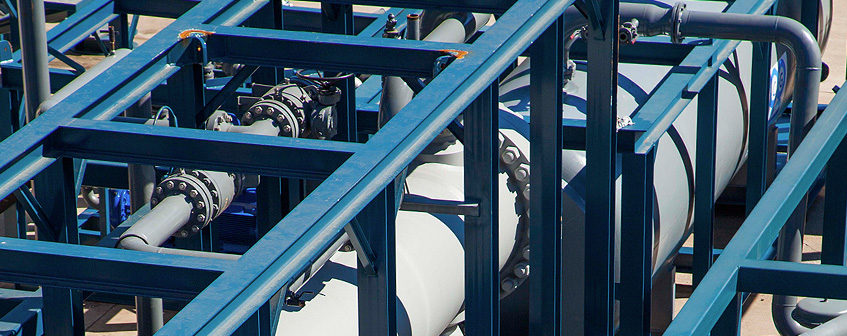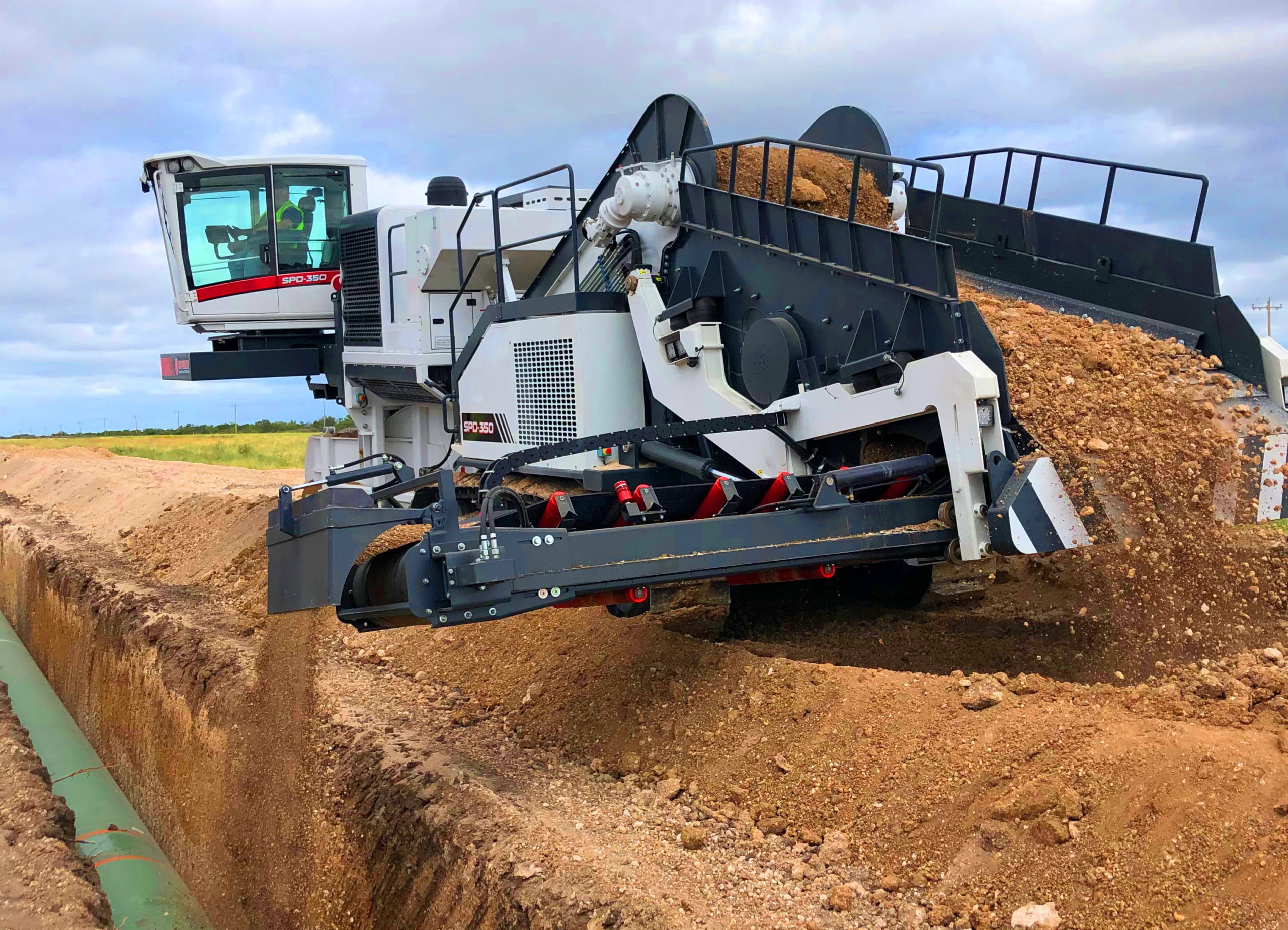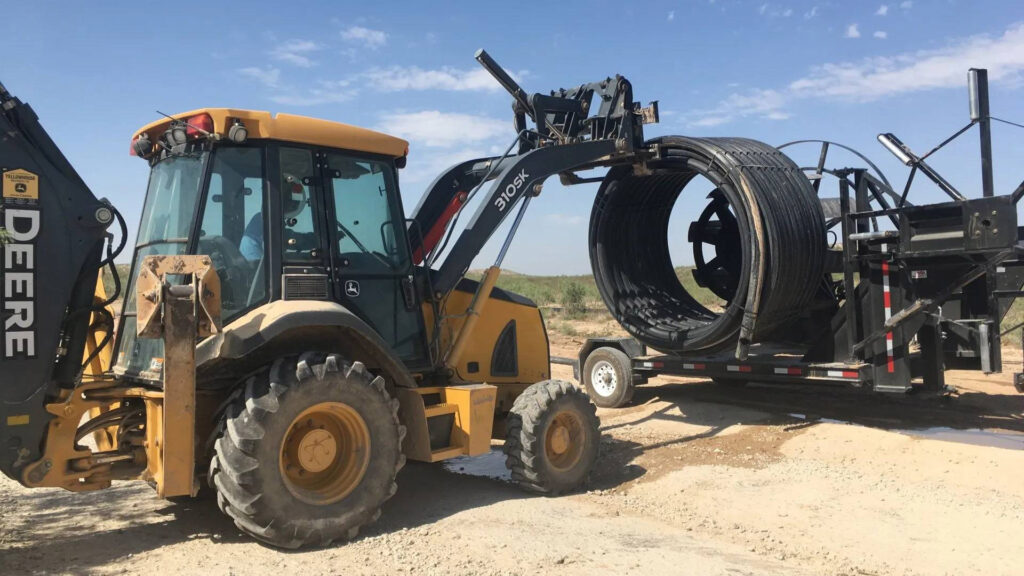Superior Rentals reviews: unbiased feedback
Wiki Article
A Comprehensive Guide to the Numerous Types of Oil Field Equipment and Pipeline Equipment Available
The oil and gas market depends heavily on customized tools for effective removal and transportation. Different kinds of equipment, from drilling rigs to storage space containers, play essential functions in this complex process. Each tool serves distinct functions that add to general operational success. Comprehending these components is essential for anybody included in the market. As the sector progresses, so too do the technologies that sustain it. What innovations are on the perspective?
Drilling Rigs: The Backbone of Oil Expedition
Drilling rigs work as the important equipment in the domain name of oil expedition, enabling business to access hydrocarbon books hidden deep underneath the Earth's surface area. These rigs come in numerous kinds, consisting of land rigs, offshore rigs, and mobile devices, each created to operate in details environments. Furnished with advanced technology, piercing rigs can pass through geological developments with accuracy, making certain effective source extraction. The structural stability and functional capacities of these rigs are crucial, as they have to stand up to extreme problems and significant pressures. The selection of a drilling gear influences the overall job price and timeline, making it an essential consideration for oil business looking for to optimize their exploration efforts and take full advantage of productivity in their procedures.Pumps: Necessary for Fluid Motion
In the oil extraction procedure, the role of pumps is considerable, helping with the movement of liquids throughout numerous stages of manufacturing. Pumps are crucial for moving unrefined oil, water, and other liquids from underground reservoirs to the surface and after that through pipelines to refineries. They can be found in various types, including centrifugal, favorable displacement, and completely submersible pumps, each serving details objectives based upon the fluid qualities and functional needs. Centrifugal pumps are commonly utilized for their effectiveness in high-flow applications, while positive displacement pumps excel in taking care of thick liquids. The option of pump impacts overall performance, operational safety and security, and maintenance prices. Proper selection and upkeep of pumps are essential for optimizing manufacturing and reducing downtime in oil area operations.Valves: Controlling Circulation and Pressure

Shutoffs play an important duty in managing the flow and stress of liquids within oil areas and pipelines. Numerous types of shutoffs offer unique applications, each created to meet details functions fundamental for reliable operation - Superior Rentals reviews. Comprehending the qualities and uses these valves is vital for optimizing system performance and security
Kinds of Valves
Crucial elements in oil area procedures, shutoffs play a vital role in regulating the flow and stress of fluids within pipes and tools. Numerous types of valves are used to satisfy the varied requirements of oil and gas manufacturing. Typical types include gate valves, which offer a straight-line circulation and marginal pressure drop; globe shutoffs, recognized for their strangling capabilities; and round valves, identified for their quick on/off control. Furthermore, check valves protect against heartburn, while butterfly shutoffs use a light-weight solution for managing flow. Each shutoff kind is created with particular materials and configurations to endure the severe problems often discovered in oil areas, making sure integrity and performance in procedures. Comprehending these kinds is critical for efficient system management.Valve Applications and Functions
While numerous kinds of valves serve distinct objectives, their primary applications focus on regulating flow and pressure within oil and gas systems. Shutoffs such as entrance, world, and sphere valves control fluid movement, making certain peak performance and security. Gate valves are commonly made use of for on/off control, providing minimal flow resistance. World shutoffs, on the various other hand, offer specific circulation regulation, making them suitable for throttling applications. Sphere valves are favored for their quick procedure and limited securing capacities. In addition, pressure safety valve are important for preventing system overpressure, safeguarding devices integrity. On the whole, the suitable option and application of valves improve functional efficiency, guaranteeing the reliable transport of oil and gas through pipelines and processing facilities.Compressors: Enhancing Gas Transport
Compressors play a vital function in the reliable transport of gas, guaranteeing that it moves efficiently via pipes over cross countries. These devices raise the stress of gas, permitting it to overcome rubbing and elevation changes within the pipeline system. Additionally, compressors assist in the balancing of supply and demand, fitting variations in usage and production prices. Numerous kinds of compressors are employed in the sector, including centrifugal, reciprocating, and rotary screw compressors, each offering distinct advantages based on the operational needs. Routine upkeep of these compressors is crucial to make the most of effectiveness and reduce downtime, eventually adding to a trusted gas transportation network. Their essential function underscores the relevance of compressors in the total oil and gas framework.Storage Tanks: Safe and Efficient Fluid Monitoring
Efficient transport of all-natural gas depends on numerous support group, among which is the appropriate administration of tank. These containers play an important role in securely containing liquids, ensuring that functional performance is kept while decreasing ecological threats. Built from long lasting products, they are designed to endure high stress and destructive aspects. Effectively sized and tactically situated, tank help with the smooth circulation of natural gas and various other fluids, protecting against bottlenecks in supply chains. Routine upkeep and monitoring are essential to discover leakages or architectural issues, advertising security and conformity with governing criteria. Eventually, the effective management of tank is essential for the overall stability and integrity of the oil and gas market's fluid handling systems.
Pipeline Equipments: Facilities for Transportation
Pipeline systems work as the foundation of the oil and gas sector, promoting the effective transport of hydrocarbons over vast ranges. These systems contain various parts, including pipelines, valves, pumps, and compressors, all thoroughly created to assure seamless flow. The materials made use of in pipeline construction, often steel or high-density polyethylene, are picked for durability and resistance to deterioration. Pipeline networks can cover across land and water, attaching production websites to refineries and distribution facilities. Furthermore, advanced technology makes it possible for real-time tracking of circulation prices and pressure degrees, boosting operational performance. The strategic positioning of these pipes decreases ecological impact while making the most of source access, thus playing an essential duty in conference power needs around the world.Safety And Security Equipment: Guaranteeing Employee and Environmental Defense
The operation of pipeline systems, while important for energy transportation, likewise offers substantial security obstacles for employees and the atmosphere. Safety equipment plays a substantial role in minimizing these dangers. Personal protective devices (PPE) such as helmets, handwear covers, and non-slip shoes safeguards employees from physical risks. Furthermore, gas discovery systems keep track of for leakages, making certain that harmful compounds do not present a threat to employees or the surrounding ecological community. Emergency closure systems are essential for rapidly halting procedures during a dilemma, stopping prospective disasters. Spill control products, including absorbents and barriers, are essential for reducing ecological effect. Overall, buying all-encompassing safety tools is vital for preserving operational stability and shielding both employees and the atmosphere in the oil and gas market.
Regularly Asked Inquiries
How Do I Select the Right Oil Field Equipment for My Task?
Picking the appropriate oil field devices entails evaluating project specs, budget restraints, and functional requirements. Take into consideration factors such as devices dependability, compatibility with existing systems, and the vendor's reputation to guarantee peak performance and security.What Are the Upkeep Demands for Oil Field Equipment?
Upkeep needs for oil field equipment consist of normal assessments, lubrication, and timely repair services. Operators must likewise abide by manufacturer guidelines, screen efficiency metrics, and guarantee conformity with security guidelines to improve longevity and performance.
How Can I Make Certain Compliance With Environmental Regulations?
To assure conformity with check here ecological regulations, companies should perform routine audits, apply best practices, purchase training, maintain proper documentation, and stay updated on legislation (Superior Rentals Contact). Partnership with environmental agencies can likewise enhance adherence to lawsWhat Is the Typical Life-span of Pipeline Equipment?
The ordinary life-span of pipeline tools typically ranges from 20 to 50 years, relying on elements such as material top quality, environmental conditions, and upkeep techniques. Normal evaluations can significantly affect durability and operational efficiency.Exactly how Do I Securely Transport Oil Field Equipment to Remote Locations?
Delivering oil field tools to remote places requires careful preparation, including path assessment, safeguarding permits, utilizing appropriate automobiles, and ensuring safety protocols are complied with. Proper training and communication amongst teams are vital for effective transport.Report this wiki page